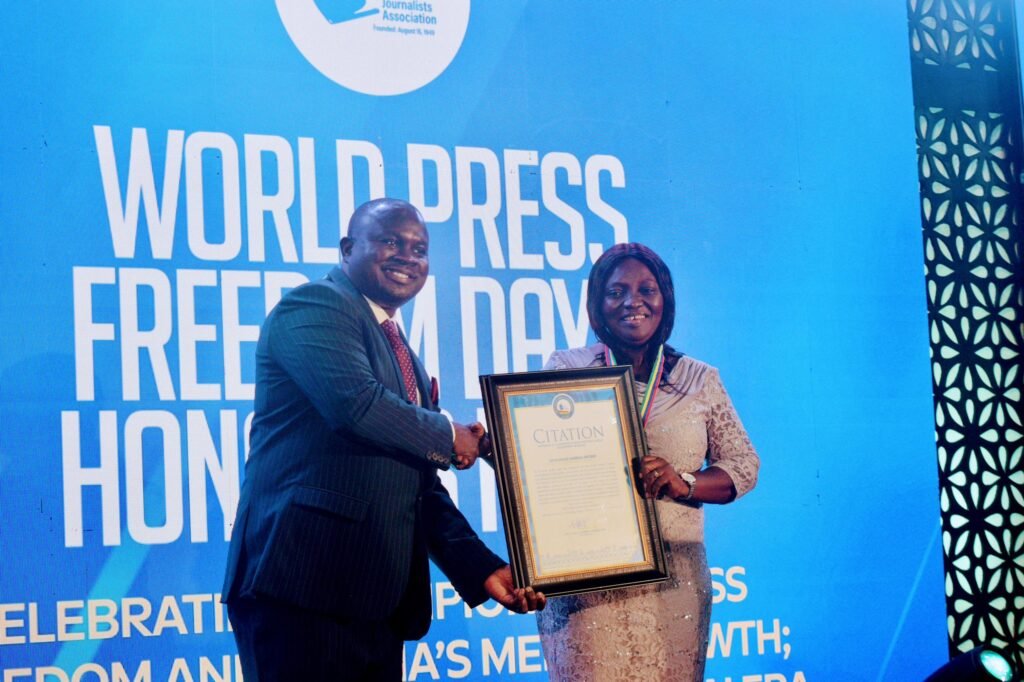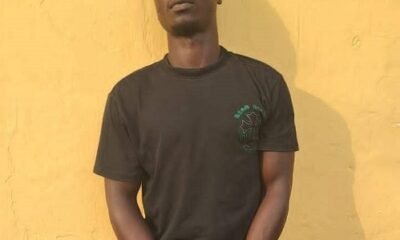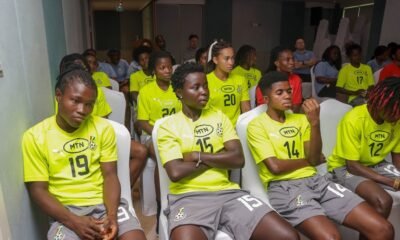News
GJA honours outstanding journalists on Press Freedom Day

The 2025 World Press Freedom Day and Honours Night was held in Accra, with the aim of highlighting the growing threats to media independence, including disinformation and unethical use of Artificial Intelligence (AI).
The event also honoured outstanding journalists for their contribution to press freedom and development.
Held under the theme ‘Reporting in the Brave New World: The Impact of Artificial Intelligence on Press Freedom and the Media’, the event brought together government officials, journalists, civil society actors, and media veterans to reflect on the evolving media landscape in Ghana and across the globe.






Addressing the gathering on behalf of President John Dramani Mahama, the Minister in Charge of Government Communications, Mr Felix Kwakye Ofosu, said press freedom was not a privilege granted by government but a constitutional right that must be protected from political cycles and corporate influence.
President of the Ghana Journalists Association (GJA), Mr Albert Kwabena Dwumfour, expressed deep concern over the increasing number of attacks on journalists, revealing that 11 assault cases were recorded in February 2025 alone.
He also noted Ghana’s drop in the World Press Freedom Index from 50th in 2024 to 52nd in 2025, with a worrying decline in the country’s media security score. While acknowledging AI’s potential to improve newsroom productivity, he cautioned against its misuse.
The event also recognised media legends for their exceptional service, including Ambassador Kabral Blay-Amihere, Ms Ajoa Yeboah-Afari, Mrs Gifty Afenyi-Dadzie, Dr Charles Wereko-Brobby, Mr Kwesi Pratt Jnr., Mr Ben Ephson, and Madam Elizabeth Ohene.
Edward Adetsi was awarded the 28th GJA PAV Ansah Journalist of the Year. The event brought together media professionals, diplomats, legislators, students, and members of civil society.
By Stephanie Birikorang
News
Man sentenced to 25 years for robbery at Manso Akwasiso

A 30-year-old man has been sentenced to 25 years imprisonment with hard labour by the Bekwai Circuit Court for his role in a 2022 robbery at a mining site at Manso Akwasiso in the Ashanti South Region.
The convict, Dominic Ofori, also known as Fanta, was arrested on 16th February 2026 after years on the run. He pleaded guilty before the Bekwai Circuit Court to robbery contrary to Section 149 of the Criminal Offences Act, 1960 Act 29, and was accordingly sentenced to 25 years imprisonment with hard labour.
On March 20, 2022, the Manso Adubia District Police received intelligence that a group of armed men from Manso Abodom were planning to attack a mining site at Manso Akwasiso to rob the owner of gold concentrate. Acting on the information, police mounted a coordinated operation and laid an ambush at the site.
At about 5:30 pm the same day, four-armed men arrived at the site, fired indiscriminately, and robbed the miners of their gold concentrate. The police team on surveillance intervened, resulting in an exchange of gunfire.
Three of the suspects, Abu Abubakar, Musah Latif, and Gideon Takyi, sustained gunshot wounds and were pronounced dead on arrival at St Martins Catholic Hospital at Agroyesum. Dominic Ofori escaped at the time but was later arrested and put before the court.
The Ashanti South Regional Police Command has assured the public of its continued commitment to combating violent crimes and bringing offenders to justice.
News
Ashanti police arrest man for publishing false news on TikTok

The Ashanti Regional Police Command has arrested 45-year-old Isaac Boafo, also known as “Duabo King,” for allegedly publishing false news intended to cause fear and panic.
Police said the arrest follows a viral TikTok video in which Boafo claimed that four officers at the Central Police Station in Kumasi engaged in inappropriate conduct with commercial sex workers during night patrols in Asafo.
Officers from the Police Intelligence Directorate (Ashanti Region) apprehended Boafo after receiving intelligence about the video.
During questioning, he admitted to creating the video to attract views and engagement online, and acknowledged that he could not prove the allegations.
Boafo also admitted making comments about the President of the Republic for content purposes and could not defend those statements.
He has been formally charged and is in detention as investigations continue.
The Ashanti Regional Police have warned the public against publishing or sharing false information on social media, noting that such acts can cause fear, panic, and damage reputations.
They said anyone found engaging in similar conduct will face legal action.
By: Jacob Aggrey














